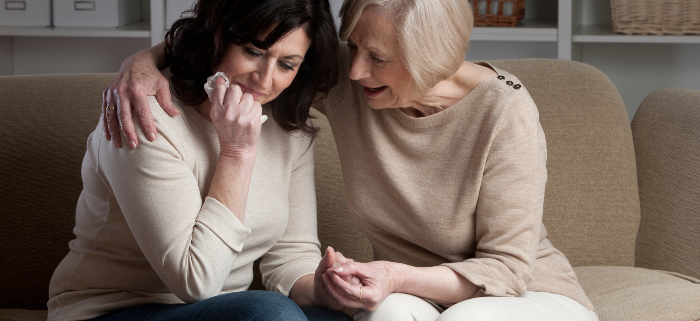Grief in the Digital Age: Social Media Etiquette After a Loss
 n today’s interconnected world, digital grieving has become an integral part of how we process loss. Social media platforms offer unique opportunities for sharing memories and receiving support, yet they also present challenges in maintaining sensitivity and respect. As you navigate this complex landscape, it’s crucial to understand the nuances of social media etiquette after a loss. This involves balancing the desire to share personal grief with the need for privacy and consideration for others. By approaching digital grieving thoughtfully, you can foster a supportive environment that honors both the deceased and the emotional journey of those left behind.
n today’s interconnected world, digital grieving has become an integral part of how we process loss. Social media platforms offer unique opportunities for sharing memories and receiving support, yet they also present challenges in maintaining sensitivity and respect. As you navigate this complex landscape, it’s crucial to understand the nuances of social media etiquette after a loss. This involves balancing the desire to share personal grief with the need for privacy and consideration for others. By approaching digital grieving thoughtfully, you can foster a supportive environment that honors both the deceased and the emotional journey of those left behind.
Understanding the Impact of Social Media on Grief
Social media platforms have transformed the way we experience and express grief, offering both solace and challenges. On one hand, these platforms provide a space for you to share memories, receive condolences, and connect with others who have experienced similar losses. This can be incredibly comforting, as it allows you to feel less isolated in your grief. However, the public nature of social media can also create pressure to share your personal grief, which may not always align with your emotional needs or preferences.
The decision to share your grief online is deeply personal and can have significant emotional implications. While some find it therapeutic to express their feelings publicly, others may feel overwhelmed by the expectation to maintain a certain level of openness. It’s important to recognize that grief is a unique journey, and there is no right or wrong way to navigate it. By understanding your own needs and boundaries, you can make informed decisions about how much to share and with whom.
Online communities can play a vital role in providing support and connection during the grieving process. These groups often offer a sense of belonging and understanding that can be difficult to find elsewhere. By engaging with these communities, you can gain valuable insights and coping strategies from others who have walked a similar path. However, it’s essential to approach these interactions with sensitivity and respect, as everyone processes grief differently.
Despite the potential benefits, social media can also hinder the grieving process if not approached with care. The constant stream of updates and notifications can be overwhelming, making it difficult to find the space and time needed for personal reflection. Additionally, the curated nature of social media can create unrealistic expectations about how grief should look or feel. By being mindful of these challenges, you can better navigate the digital landscape and prioritize your emotional well-being.
Ultimately, understanding the impact of social media on grief involves recognizing both its potential to help and its capacity to hinder. By approaching social media with intention and awareness, you can create a supportive environment that respects your grief journey. This involves setting boundaries, seeking out supportive communities, and being mindful of the emotional implications of sharing your loss online. Through thoughtful engagement, you can honor your own needs while also fostering a compassionate space for others who are grieving.
Best Practices for Sharing and Responding to Loss Online
When announcing a loss on social media, it’s important to approach the situation with respect and consideration for both yourself and your audience. Begin by deciding how much information you are comfortable sharing and who you want to see it. Craft your message thoughtfully, acknowledging the loss while being mindful of the emotional impact it may have on others. Remember, you are not obligated to share every detail; it’s perfectly acceptable to keep certain aspects private.
When responding to others’ grief posts, offering social media condolences requires sensitivity and empathy. A simple, heartfelt message can go a long way in providing comfort. Avoid making assumptions about the person’s feelings or offering unsolicited advice, as grief is a deeply personal experience. Instead, express your support and willingness to listen, allowing the grieving individual to guide the conversation if they choose to engage further.
- Be mindful of the timing and platform when sharing news of a loss.
- Use privacy settings to control who can view your posts and comments.
- Consider the preferences of the deceased’s family before posting.
- Offer genuine support without imposing your own experiences or beliefs.
- Respect the grieving person’s pace and need for space.
Controlling the narrative of your grief is crucial in maintaining your emotional well-being. Utilize privacy settings to manage who can see your posts and interact with them, ensuring that your digital space remains a safe environment. This control allows you to share your journey on your terms, without feeling pressured to conform to external expectations. By setting these boundaries, you can focus on healing while still engaging with supportive communities online.
Ultimately, navigating grief on social media requires a balance of openness and discretion. By thoughtfully sharing your experiences and responding to others with compassion, you contribute to a supportive digital environment. This approach not only honors the memory of the deceased but also respects the diverse ways in which people process loss. As you engage with social media during this challenging time, remember that your emotional needs and boundaries are paramount, and it’s okay to prioritize them.
Navigating Memorialization and Digital Legacies
Creating online memorials or tribute pages can be a meaningful way to honor the memory of a loved one. These digital spaces allow you to share stories, photos, and memories, fostering a sense of community among those who knew the deceased. When setting up a memorial page, consider the preferences of the deceased’s family and friends, ensuring that the content is respectful and appropriate. It’s also important to monitor the page for any inappropriate comments or content, maintaining a space that truly honors the individual.
Managing a deceased person’s social media accounts presents unique challenges and considerations. You may need to decide whether to memorialize the account, delete it, or leave it as is. Each platform has its own process for handling accounts of deceased users, so it’s crucial to familiarize yourself with these procedures. By taking the time to understand the options available, you can make informed decisions that align with the wishes of the deceased and their family.
The concept of digital legacies is becoming increasingly relevant as more of our lives are lived online. A digital legacy encompasses the online presence and digital assets left behind after someone passes away. This can include social media accounts, blogs, and other digital content. As you navigate grief and loss, consider how these digital legacies can impact the grieving process, offering both comfort and challenges as you remember and honor your loved one.
When dealing with digital legacies, it’s important to consider the long-term implications of maintaining or closing online accounts. Keeping an account active can provide a space for ongoing remembrance and connection, but it may also require ongoing management and monitoring. Conversely, closing an account can offer closure but may feel like losing a part of the deceased’s presence. Weighing these options carefully can help you make decisions that best support your emotional needs and those of others who are grieving.
Ultimately, navigating memorialization and digital legacies requires a thoughtful approach that balances respect for the deceased with the needs of the living. By understanding the processes involved and considering the emotional impact of digital legacies, you can create a supportive environment that honors your loved one. As you engage with these digital spaces, remember that your choices should reflect both the memory of the deceased and the ongoing journey of grief and loss.
Honoring Grief with Digital Grace
In the digital age, your approach to grief on social media can profoundly impact both your healing journey and the support you receive. By practicing thoughtful social media etiquette, you honor the memory of the deceased while fostering a compassionate online environment. Remember to balance openness with privacy, and engage with others’ grief posts with empathy and respect. As you navigate this digital landscape, your mindful actions can create a meaningful and supportive space for all who grieve.









